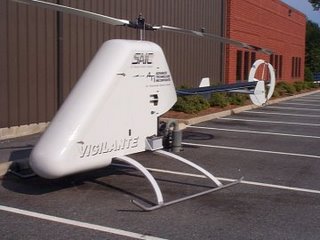 George H.W. Bush, during his mid-70s tenure as head of the CIA, spearheaded the privatization of the US intelligence apparatus, an act that has led to a massive decentralization and deregulation of America's national security and foreign policy operations. Thirty years later, companies such as Scientific Applications International Corporation (SAIC) are reaping the rewards of a for-profit intelligence service. But is allowing the free market to capitalize on terrorism, war, and insecurity a recipe for disaster?
George H.W. Bush, during his mid-70s tenure as head of the CIA, spearheaded the privatization of the US intelligence apparatus, an act that has led to a massive decentralization and deregulation of America's national security and foreign policy operations. Thirty years later, companies such as Scientific Applications International Corporation (SAIC) are reaping the rewards of a for-profit intelligence service. But is allowing the free market to capitalize on terrorism, war, and insecurity a recipe for disaster?To get a good sense of who SAIC is and what they're up to, check out their web site. The job opportunities page alone is worth hours of attention, detailing SAIC's involvement with everything from WMD inspection to boots-on-the-ground human intelligence-gathering and covert operations.
 But SAIC isn't just about providing contract personnel to the CIA: they also make the weapons systems that support those agents in the field, nifty little toys like the Vigilante and the Global Hawk.
But SAIC isn't just about providing contract personnel to the CIA: they also make the weapons systems that support those agents in the field, nifty little toys like the Vigilante and the Global Hawk.Need a bioweapons scanner? An aerial combat command and control system? Interrogation equipment? Email interceptor? SAIC can handle it. Check out their disturbingly complete products list for more shivers.
Creepy, sure, but one could suppose that somebody has to do it (um, how about the government?). There are concerns, however, that SAIC is doing more than just "supporting" the United States' various wars and covert operations -- after all, they're the ones (along with regular partners Boeing, Halliburton and so forth) who stand to make a profit when America goes to war.
The connections run from the mundanely corrupt to the truly bizarre. Suspected bio-terrorist Steven Hatfill (remember the Anthrax scare? He was the only suspect), for example, is a long-time SAIC employee. CNN, among many other news agencies, got very excited about him for a while until the FBI dropped him as a suspect in the anthrax letter-bombing case (they never produced another):
FBI agents searched the apartment of a former researcher at the U.S. Army's biological warfare defense laboratory at Fort Detrick for the second time in two months Thursday.The Washington Post later profiled Hatfill, detailing his connection to SAIC:
The researcher, Steven Hatfill, 48, had previously been questioned in the investigation of last fall's anthrax attacks and had his apartment searched in June. No arrests are imminent, sources said.
FBI Director Robert Mueller said only that investigators had made progress in Thursday's search, which included trash bins outside Hatfill's apartment. Sources said authorities also searched the apartment of a Hatfill friend.
Mueller said an FBI profile of the suspected anthrax mailer -- a lone person living within the United States with experience working in labs and smart enough to "produce a highly refined and deadly product" -- had not changed.
A State Department official revealed Thursday that Hatfill, an infectious disease specialist who has worked both in and for the government for nearly two decades, is on the standby roster of experts waiting to go to Iraq with the U.N. weapons inspection team if President Saddam Hussein approves. (CNN.com)
Maryland, under the direction of Republican officials, used SAIC to justify the use of Diebold machines. C.D. Sludge of Scoop reports on the various conflicts of interest associated with the Maryland fiasco:[Stephen Hatfill] took a consulting job with the behemoth government contractor Science Applications International Corp., better known as SAIC. With a sprawling campus in McLean, it did work for a multitude of federal agencies. Many projects were classified, and SAIC's tight relationship with the CIA had led to a standing one-liner: "What is SAIC spelled backwards?"
[At SAIC, Hatfill designed and taught bioterror preparedness courses, but his responsibilities also included "black," or classified, biowarfare projects. One of Hatfill's major roles was working with the Joint Special Operations Command, which handled U.S. military counter-terrorism operations.]
At Fort Bragg, N.C., Hatfill led gruelling training for Army commandos preparing for covert missions to find and destroy weapons of mass destruction, according to friends and former colleagues. He conducted counter-terrorism training for Defense Intelligence agents and did a "super job," says DIA spokesman Don Black.
Hatfill designed programs and training equipment for Navy SEALs, and SAIC colleagues say he often sat at his desk designing mock bioterror training devices, including a backpack that could be used by enemies to spray germs on the battlefield. He trained CIA agents in counter-proliferation, and shuttled to U.S. embassies abroad to teach bioterrorism preparedness. (Washington Post)
On the board of the Enterprise Solutions Division of the Information Technology Association of America (ITAA) – a lobbying organisation bidding to provide a $200,000+ public opinion manipulation campaign on electronic voting – is a senior vice president of SAIC, the company tasked with investigating the security of the Diebold voting machine technology in the states of Maryland and Ohio.
...
SAIC has been tasked by the Governor of the state of Maryland to report on security concerns around Diebold Election Systems software and hardware..
To date in the developing story about electronic security concerns about new touch screen voting systems – black box voting – high profile conflicts of interest have already caused problems for 1) Nebraska Republican Senator Chuck Hagel and 2) for Johns Hopkins university professor Avi Rubin, co-author a report damning Diebold's touch screen software security published in June. (Scoop)
 SAIC is one of the "big five" US military contractors, and a major player in the global security, intelligence, and mercenary industry. SAIC's contracts in Iraq alone run into the billions of dollars. One of its most controversial activities is the establishment and operation of a state-wide propaganda organ:
SAIC is one of the "big five" US military contractors, and a major player in the global security, intelligence, and mercenary industry. SAIC's contracts in Iraq alone run into the billions of dollars. One of its most controversial activities is the establishment and operation of a state-wide propaganda organ:"Information dominance" came of age during the conflict in Iraq. It is a little discussed but highly significant part of the US government strategy of "full spectrum dominance", integrating propaganda and news media into the military command structure more fundamentally than ever before.There was also an article on this in the NYTimes. Here's the abstract:
In the past, propaganda involved managing the media. Information dominance, by contrast, sees little distinction between command and control systems, propaganda and journalism. They are all types of "weaponized information" to be deployed. As strategic expert Colonel Kenneth Allard noted, the 2003 attack on Iraq "will be remembered as a conflict in which information fully took its place as a weapon of war".
The new TV service for Iraq was paid for by the Pentagon. In keeping with the philosophy of information dominance it was supplied, not by an independent news organisation, but by a defence contractor, Scientific Applications International Corporation (SAIC). Its expertise in the area - according to its website - is in "information operations" and "information dominance". (The Guardian)
Pentagon has quietly awarded $300,000 contract to SAIC, major defense consultant, to study how Defense Dept could design 'effective strategic influence' campaign to combat global terror; this comes year after Defense Sec Rumsfeld disbanded Pentagon's Office of Strategic Influence after it became known that office was considering plans to provide false news items to unwitting foreign journalists to influence policymakers and public sentiment abroad; senior Pentagon officials say new contract with SAIC does not reflect backdoor effort to resurrect discredited office and is merely study to understand Al Qaeda better and find ways to combat it. (New York Times)One of the more striking examples of how deep the SAIC-Bush ties run is the case of David Kay the latest (and supposedly final) "weapons inspector" in Iraq. Kay has been a SAIC VP since 1993. His biography is interesting reading, especially in light of his relationship to Iraq, Anthrax suspect Hatfill, and the current "War on Terror." (Mail Archive Bio)
[This article originally appeared January 17, 2004 on my now-defunct Oakley Centre website; since then, several developments relating to this story have occured, not least of which was David Kay's announcement following his tour of duty as chief inspector that there were no WMDs in Iraq. Oh, yeah, and the election. Bush won.]
